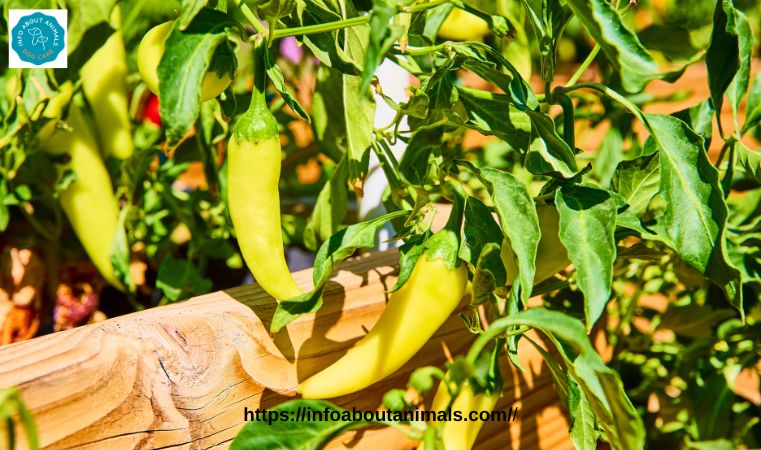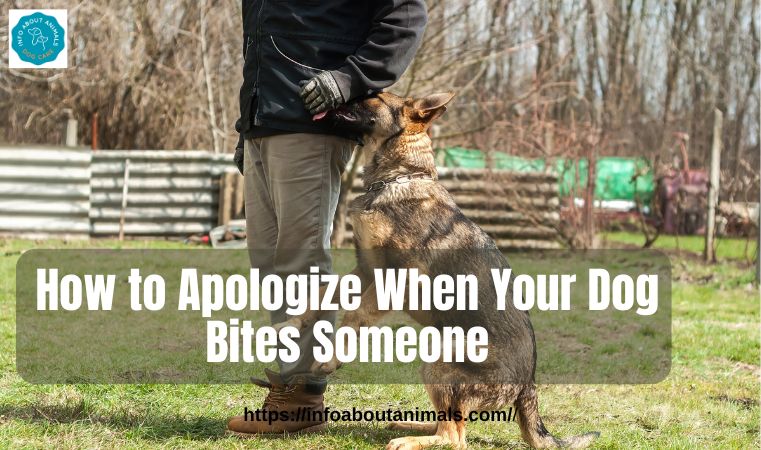Can a dog have a banana pepper? Exploring what can and cannot be eaten by our pet animals is a part of responsible pet care. One of several questions pet owners have is can a variety of foods, including banana peppers, be consumed by a dog? In this in-depth article, we will cover in detail nutritional value, any concerns for its health, veterinary recommendations, safe preparation, and alternatives. What we hope to present in a balanced format is information to allow your pet companion to have an educated decision-maker in its owner. In this article, we will answer one simple but significant question: can a dog have a banana pepper?
What is Banana Peppers
Banana peppers are mild chili peppers with a ubiquitous presence in salads, sandwiches, and even a pizza topping. Yellow in hue and with a tang and a touch of sweet, they have become a staple in many cuisines for humans worldwide. There is a lot of controversy, yet, between pet owners regarding whether can dogs have banana peppers, and worth noting is a lot of information can vary when researching about them for your pet.
Banana peppers belong to a family of peppers that have both sweet and hot peppers, and both have a small spiciness in them in terms of a compound, namely, capsaicin, responsible for spiciness in peppers. Even when not spiciness, in terms of spiciness, most chili types have a lot of spiciness, and even a small spiciness in banana peppers can make a dog’s gastrointestinal system irritated. Having your options in view, recall the specific question: can a dog have a banana pepper?
Nutritional Profile of Banana Peppers
Banana peppers contain a range of vitamins and minerals that at first glance can seem positive. Bananas peppers include vitamins C and A, antioxidants, and fibre—all of them useful in moderation. However, the nutritional value for canines is in doubt, with canines possessing a nutritional profile that is not similar to humans.
Most canine nutritionists say that the minor level of nutrition received through intermittent contact with banana peppers is overbalanced with danger in terms of capsain, a compound in capsain-containing foods, such as banana peppers, that can cause gastrointestinal irritation in canines. As a result, when deciding whether canines can have access to banana peppers, balancing minor positive factors with potential gastrointestinal irritation must take place.
While vitamin C is an important nutrient, canines have a mechanism in their bodies for producing such a vitamin, and thus don’t rely on foods for it in the same way humans do. Fiber, likewise, is a healthy constituent of a healthy gut, but in such a scenario, safer and canine-friendlier substitutes can be discovered. As such, nutritional compromises must then become closely evaluated in terms of your canine’s overall nutrition and welfare.
Potential Health Threats Associated with Banana Peppers
One of the biggest concerns for owners is the potential for a negative reaction that can occur when canines consume banana peppers. Containing a mild level of capsaicin, a mild form can make a dog’s mouth, throat, and stomach become inflamed.
Drooling, throwing up, diarrhea, and abdominal pain have been experienced when canines have consumed spicier foods, including foods with a mild level of spiciness. In extreme cases, an inflamed stomach can lead to dehydration when not addressed early enough.
Furthermore, banana peppers, when pickled, can have excessive sodium contents. Canine consumption of high salt is not healthy and can produce symptoms including thirst, vomitting, and diarrhea.
In view of such risks, one cannot but wonder: can one give one’s canine friends a chance to enjoy banana peppers and not jeopardize their health? According to most veterinarians, a general consensus is reached: a little will not hurt them initially, but one must not give them such pungent treats at all.
Veterinary Insights into Canine Consumption of Peppers
Veterinarians and pet nutritionists have a lot of useful information regarding new foods in your pet’s menu and its safety. Most professionals believe canine digestive tracts to be a lot more sensitive in relation to humans, and foods that are safe for humans can make your pet uncomfortable in a big manner. According to a variety of veterinary sources, even minor concentrations of capsaicin in banana peppers can cause gastrointestinal complications in canines. In inquiring about, can dogs have banana peppers, expert guidance is to go with caution.
Veterinarians advise that in case any unnormal symptoms including persistent vomiting, sleepiness, and symptoms of agony develop after your pet eats any spiciness, then your pet doctor must immediately be contacted. The general guideline is that a little bite will not kill, but it is not worth taking a chance with long-term misery and even complications in terms of one’s wellbeing.
Safe Preparation and Serving Suggestions
If you’re contemplating providing your dog with a bite of a pepper, several precautions can be taken in an effort to minimize any future risk. Most significant, preparation is paramount. Dogs can only have a small, de-seed, and skinned portion of any pepper in an effort to minimize any opportunity for a choke and gastrointestinal upset. For those who’re thinking about can dogs have banana peppers, a little information is below:
Remove Seeds and Peels: Seeds will make your dog choke, and peels will make your dog digest with difficulty.
Cook Lightly: Heat will break down and destroy part of the capsaicin, but will destroy a little nutritional value, as well. Steam them unseasoned, best.
Serve in moderation: Regardless of whether your pepper is mild, serve it in moderation and not a staple in your pet’s menu.
These steps can mitigate most of the risks of naturally present compounds in banana peppers. Recall, however, the guiding question: can a dog safely eat banana peppers when prepared in a proper manner?
Alternatives to Banana Peppers for a Dog
Given the potential for danger with banana peppers, it may make sense to utilize safer alternatives when providing a veggie snack for your pet companion. Bell peppers, for one, have long been a safe and healthy pet snack. There is no capsaicin in bell peppers, and no spiciness, and an easier journey through your pet’s gastrointestinal system.
Other dog-friendly foods include cucumbers, carrots, and green beans. All three foods have antioxidants, vitamins, and fiber with no opportunity for gastrointestinal irritation. So, when you’re thinking can a dog have a banana pepper, you can most likely discover a lot of alternative foods that will work best for your pet’s nutritional needs.
Guidelines to Feed Banana peppers to Dogs
Introducing any new food to your canine’s menu must be planned with care and moderation. In case you’re contemplating experimenting with banana peppers—even with all protective gear in place—it is advisable to follow stringent feeding protocols. Start with a small portion and closely monitor your canine for any sign of reaction and discomfort.
Remember, the real question at its core is: can your dog safely have banana peppers? Most veterinarians will say that it’s best to first speak with your veterinarian regarding adding any new and unorthodox foods to your canine’s diet, including foods with a little spiciness and processed foods. Monitoring your dog’s reaction for 24 hours is a must, in case gastrointestinal symptoms have a delayed reaction.
Common Questions and Misconceptions
The topic of canine consumption of foods prepared for humans is replete with fables and misconceptions. Perhaps one of the most long-standing questions is, can a dog have a banana pepper? Most pet forums and web forums have conflicting information, and pet owners become confused about whether such foods can ever be safe for them.
Some pet owners report that their animals have had a little bit of banana peppers with no issue, but then again, some say even a little bite will result in extreme gastrointestinal upset.
It’s important to apply such anecdotal information with a critical mind.
Individual tolerance can occur in animals, and success with a specific food in one pet can mean nothing for a different pet. Personal experiences must always defer to veterinary consultation and scientific fact when choosing your best option for your canine’s nutrition.
Anecdotal Evidence of Dog Owners
Many pet owners report individual experiences with foods that their canines have eaten in discussion groups and forums. In discussion groups and forums, one can sometimes encounter posts reporting owners’ claims that canines have eaten a little of banana peppers with no apparent problem. Individual experiences, however, cannot act in place of expert advice. What actually concerns us—do canines eat banana peppers—is complex in that each canine’s gastrointestinal system metabolizes such hot chemicals in an individually variable manner.
While some owners will not even report any reaction, but others will report symptoms such as drooling, vomitting, and diarrhea even when a mild pepper having been licked by their canines. Varying experiences remind one of moderation and consultation with a veterinarian first, even when including a possibly dangerous food in your pet’s menu.

Balancing Benefits and Costs
When evaluating whether to introduce any new food to your canine’s menu, one must counterbalance potential gain with potential danger. Banan peppers have a negligible nutritional value and fiber, but such values don’t count when measured in terms of danger through capsaicin and excessive sodium consumption (in case of pickled peppers specifically). For most pet owners, a pet’s security is paramount, and one must exercise care in such a scenario.
The recurring query, can dogs consume banana peppers, will have an individual answer contingent on your canine’s overall state of health, age, and overall nutrition. In a healthy, mature canine, a small bite will not necessarily have any dire consequences, but in a puppy and in a sensitive canine, such actions will have a high chance of having a detrimental impact. Considering these factors with care will allow your canine to maintain a healthy and comfortable state.
Understanding Your Dog’s Digestive System
A key in deciding whether any human food is safe for a canine to eat is an awareness of how its gastrointestinal system processes a range of compounds. Dogs have shorter and acid-filled gastrointestinal tracts compared to humans, and for that reason, can become irritated with spiciness and unorthodox foods with ease.
As you wonder, can a canine have a banana pepper, it’s important to remember that even a small amount of capsaicin can produce a reaction, with symptoms including abdominal ache and diarrhea.
Furthermore, a canine’s gastrointestinal system cannot digest specific compounds that humans digest with no problem at all. That is why many foods that appear innocent enough can wreak havoc in a dog’s system. Realizing such differences confirms that, whereas a little of certain foods can work for canines, a lot of them, such as banana peppers, must simply be avoided altogether.
Introducing New Foods into a Dog’s Diet
If you’re inclined to introduce any new fruit, including alternatives for banana peppers, to your canine’s diet, it’s important to introduce them at a slow pace. Start with a little and monitor your pet for any sign of reaction, including an issue with digesting them. Integration must be at a slow pace, with your pet’s gut having an opportunity to adapt and not become overwhelmed with new foods at one time.
Even if your curiosity informs you about whether can dogs have banana peppers, it is significant to introduce any new food in a slow and careful manner. Integration in slow phases keeps your pet’s gut secure and helps you monitor your pet’s tolerance level for new foods. With a little patience, you can adjust the amount and schedule in relation to your pet’s reaction and your veterinarian’s guidance.
Read Also: Can Dogs Eat Wild Rice?
Expert Recommendations and Final Thoughts
Experts in canine nutrition have one overall agreement: while certain vegetables can enter a canine’s system safely and even positively, including foods with a mild spice such as banana peppers, is a matter of contention.
Experts in veterinary care remind everyone that it is safer to utilize a food proven safe for intake, even in a tasty reward, and not gamble with a food with a potential for a negative impact, such as one with capsaicin. As such, when faced with the question, can a dog have a banana pepper, overall guidance is to utilize safer foods such as bell peppers, carrots, and cucumbers.
Veterinary nutritionists remind one that any deviation in your pet’s routine diet must be taken care of with a professional, particularly in case your pet is afflicted with any medical complications. The general guideline is to exercise extreme care and simplicity in your pet’s nutrition, with each treat being healthy and digestible enough for your pet’s consumption.
Practical Tips for Dog Owners
For pet owners with an ever-present desire for new and exciting treats, it can become a temptation to try a little of everything. Nevertheless, when deciding whether can dogs have banana peppers, one must not forget useful tips:
Consult Your Doctor: Before new foods can be added to your pet’s menu, a veterinarian’s expert opinion, especially for a pet with a sensitive stomach or a documented allergy, must first be consulted.
Start Small: Even when testing a small section of a banana pepper, observe your dog closely for any sign of distress.
Avoid Processed Versions: Bananas with salt and spices added, and pickle peppers, cannot be taken, for they have high sodium contents that can cause your pet harm.
Educate Family Members: All family members must learn that foods in your home can and cannot be shared with your pet.
Conclusion
After examining expert evaluations, nutritional worth, and possible danger, can dogs have banana peppers comes into consideration in conclusion. Banan peppers can even look safe and healthy for a human, but mild spiciness and gastrointestinal irritation make them an uncertain snack for a pet. Capsaicin in peppers can cause unnecessary irritation, and even in a small quantity, can cause gastrointestinal irritation in sensitive animals.
For dog owners wanting to expand their pet’s palate, safer alternatives such as bell peppers, carrots, or green beans have nutritional value but none of the peril of hot compounds. As a general principle, your first concern must ever be your dog’s welfare and well-being, and therefore, discussing with a veterinarian first about any new foods is a necessity.
In the long run, even with temptation in mind, your pet’s welfare must win out, and therefore, when questioned again, can a dog have a banana pepper, the safe answer is to use caution and choose pet-safe alternatives.
FAQs: Can Dogs Eat Banana Peppers?
Can dogs eat banana peppers?
The short answer is no, but with a caveat: exercise caution, say professionals. To respond, can a dog have banana peppers, recall that such peppers contain capsaicin, a compound that gives them a mild spiciness and can make a dog’s mouth and gastrointestinal system irritated. Even a small amount will make your pet uncomfortable, and for that reason, best not to serve them to your pet.
What happens when my dog consumes banana peppers?
If your pet consumes banana peppers, symptoms of gastrointestinal upset can be seen. Drooling, mild vomitting, diarrhoea, and abdominal pain are a few symptoms exhibited. In most instances, consumption will not be life-threatening, but will make a lot of animals uncomfortable, particularly sensitive-stomached ones. In inquiring can dogs have banana peppers, remember even a little irritation can make for a poor meal and an interrupted gastrointestinal system, and for that reason, inspect your pet for any reaction after contact is a must.
Are all banana peppers safe for use with dogs?
Not exactly. Can dogs have banana peppers is determined by variety. There are some mild banana peppers and others with a little more capsaicin in them. That variety creates a problem in that even when one variety can be tolerated, a different one can cause a reaction. Because of potential variation, it’s best to not have any variety at all and not have a reaction occur.
What alternatives can I consider instead of banana peppers?
If you’re unsure about whether canines can have banana peppers and prefer a safer option, bell peppers make a strong case for consideration. Bell peppers lack any capsaicin, and as such, are completely non-spicy and less taxing for your canine’s digestive system. Nevertheless, they have vitamins and antioxidants, but with none of the danger involved in mild spiciness in banana peppers. Carrots, cucumbers, and green beans, all three, can make a healthy addition to your canine’s intermittent treat.
How should I introduce peppers into my dog’s diet safely?
If you’re deciding to try any form of pepper—even when asking can a dog have a banana pepper—do it with a little first. Remove any peel and seeds to have less chance of your pet choking and easier for yourself to monitor your pet for any sign of distress. SLOW INTRODUCTION of any new food helps in preventing gastrointestinal upset and knowing your pet’s tolerance level.
References:
- Can Dogs Eat Banana Peppers? Expert Answers to Your Questions (n.d.). Retrieved from https://www.justanswer.com/dog-health/jk97q-ate-piece-pickled-banana-pepper-fell-off.html
- My neighbor’s dog really likes banana peppers. (n.d.). Retrieved from https://www.reddit.com/r/aww/comments/4ys5m6/my_neighbors-dog-really-likes-banana-peppers/
- Can Dogs Eat Banana Peppers? Expert Answers & Advice (n.d.). Retrieved from https://www.justanswer.com/dog-health/cwgly-dog-eat-1-2-sandwich-onions-banana.html
- Banana Pepper Is Not Toxic To Dogs – Greg (n.d.). Retrieved from https://greg.app/banana-pepper-toxic-to-dogs/
- Can Dogs Eat Banana Peppers? Vet-Reviewed Nutrition Facts & FAQ (n.d.). Retrieved from https://www.dogster.com/dog-nutrition/can-dogs-eat-banana-peppers
- Can Dogs Eat Peppers? Find out which ones are really toxic (n.d.). Retrieved from https://www.thedogbakery.com/blogs/news/can-dogs-eat-peppers?srsltid=AfmBOopO1pf-_gzJlSfzCh7tyVnMkb71EiiJcz7rEoXjLQH43Q_vgr3w
- Can Dogs Eat Peppers? – Wag! (n.d.). Retrieved from https://wagwalking.com/wellness/can-dogs-eat-peppers






